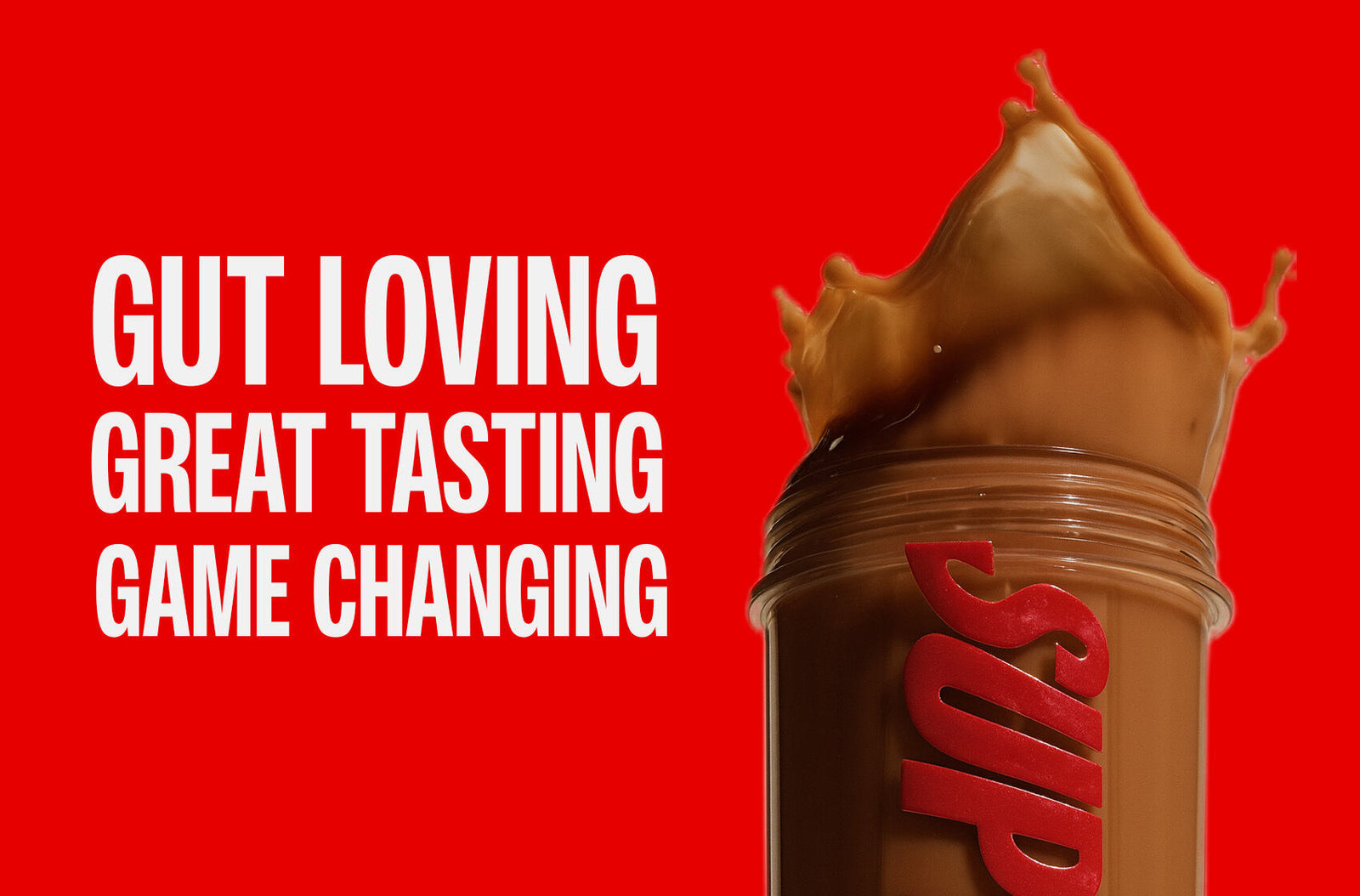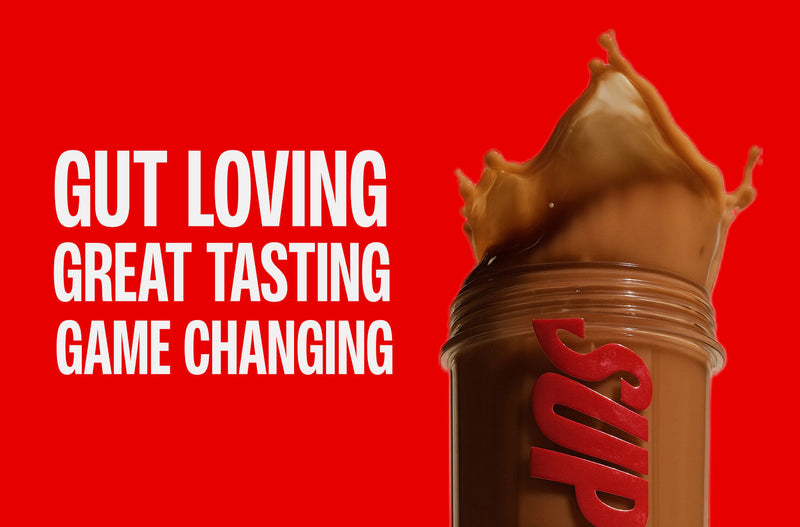It’s not the reps. It’s not the routine. If post-workout discomfort keeps creeping in, your protein might be the culprit, especially if it comes with dairy.
If this sounds familiar, you're not alone. Lactose intolerance affects over 60% of adults, making most dairy-based protein powders, especially whey, a tough sell for the gut. But skipping whey doesn’t mean compromising on results.
Enter fermented yeast protein powder: a 100% lactose-free, high-performance protein source that delivers everything you want, without the digestive backlash. Let’s unpack why traditional protein powders fall short for the lactose-intolerant and how this fermented fix changes everything.
Why Whey and Your Gut May Not Get Along
Whey protein is derived from milk, and milk contains lactose, a naturally occurring sugar that relies on the enzyme lactase for digestion. While infants typically produce enough lactase, most adult bodies begin to produce less over time, making lactose harder to break down as we age. When that happens, lactose remains undigested in the gut, which begins to ferment, leading to a cascade of digestive symptoms.
Here’s what that can look like:
-
Bloating and gas
As undigested lactose ferments in the large intestine, it produces gas and draws in water, creating pressure, distension, and a heavy, uncomfortable feeling that can linger for hours. -
Cramps and abdominal discomfort
The gut’s attempt to move along undigested lactose can trigger spasms or pain, particularly in people with sensitive or inflamed digestive systems. -
Diarrhoea or loose stools
The osmotic effect of lactose pulls water into the colon, often speeding up transit and resulting in urgent, watery bowel movements. -
Nausea or queasiness
In some cases, the discomfort begins earlier, during digestion in the small intestine, leading to mild nausea or a feeling of unsettled digestion post-shake.
Even “lactose-free” whey protein isolates may still carry trace levels of residual lactose, which can trigger symptoms in those with mild intolerance or sensitivity.
Why Plant-Based Protein May Not Always Be the Right Fix
When whey stops working, plant-based proteins are often the first place people turn. They’re dairy-free, allergen-aware, and easy to find. But they’re not always easy to digest or as complete as you might think. Here’s where they fall short:
1. Antinutrients like phytates and lectins
Many plant proteins, especially those sourced from legumes and grains, contain phytates and lectins, which are naturally occurring compounds that plants use for defence. The human gut can bind to minerals like iron, zinc, and calcium, inhibiting absorption and irritating the gut lining over time.
2. Added fibres and thickeners
Many plant proteins include ingredients like inulin, xanthan gum, or guar gum to improve texture. These may be well tolerated in small amounts, but in concentrated doses (like your daily scoop), they can ferment in the gut, leading to bloating, gas, and discomfort, especially in individuals with sensitive digestion or IBS.
3. Incomplete amino acid profiles
Most single-source plant proteins are not complete proteins. That means they lack one or more of the nine essential amino acids your body can’t make on its own. Some brands compensate by blending different sources (like rice + pea), but this still doesn’t always guarantee optimal amino acid ratios, particularly for muscle recovery and lean mass retention.
So, while plant-based may solve the lactose issue, it introduces new complexities for your gut and your gains.
The Fermented Fix: Why This Protein Works Better
Fermented yeast protein powder doesn’t sit on either side of the whey vs. plant debate. It redefines what protein can be: easier to digest, complete in its profile, and built to support, not stress, your gut. Let’s break that down.
1. 100% Lactose-Free and Dairy-Free
There’s zero milk, zero whey, and zero lactose, so it’s safe for anyone with lactose intolerance, dairy sensitivities, or general digestive fragility. Unlike many conventional protein powders, fermented yeast protein is also free from soy, gluten, and other top allergens, making it a clean choice for a wider range of bodies.
2. Pre-Digested Through Fermentation
Fermentation isn’t a buzzword; it’s a biological shortcut. During fermentation, protein is broken down into short-chain peptides and amino acids before it ever reaches your gut. That means your body absorbs more, faster, and without the digestive toll. This pre-digestion process also helps reduce compounds that commonly cause bloating and discomfort. The result is high absorption, low resistance, and zero side effects.
3. Complete Amino Acid Profile
Fermented yeast protein delivers all nine essential amino acids, including the key BCAAs, leucine, isoleucine, and valine, needed for muscle synthesis, recovery, and resilience. It offers the same protein completeness as whey, with none of the dairy drawbacks or allergenic baggage. Whether you’re rebuilding after training or just staying strong through a long day, this is protein your body can fully use.
4. Supports Gut Health, Not Just Muscle Health
Fermented yeast protein contains naturally occurring prebiotics, which help nourish your gut’s beneficial bacteria. Unlike many protein powders that are neutral at best, or disruptive at worst, this one actively supports microbiome balance, which is essential for immunity, digestion, and long-term energy regulation. No added gums. No artificial fibres. Just clean fuel that respects your gut’s rhythm.
How It Compares: Best Lactose-Free Protein Powder
|
Feature |
Fermented Yeast Protein Powder |
Whey Protein |
Plant Protein (Non-Fermented) |
|
Lactose-Free |
Yes |
No |
Yes |
|
Bloat-Free Digestion |
Yes |
No (lactose issues) |
No (antinutrients, added fibres) |
|
Complete Amino Acids |
Yes |
Yes |
Not always |
|
Prebiotic Benefits |
Yes |
No |
Minimal |
|
Easy on the Gut |
Yes |
May cause bloating |
May be hard to digest |
|
PDCAAS |
1.0/1.0 |
1.0/1.0, but may be lower in sensitive users |
Varies by formulation |
No Lactose. No Bloating. Just Results.
You don’t have to compromise on your protein to protect your gut. SUPERYOU’s fermented yeast protein powder is complete, clean, and clinically easier to digest, giving you everything you need for recovery, energy, and strength without discomfort.
Say goodbye to bloating and hello to better protein. Try SUPERYOU today.
FAQ: Lactose-Free Protein Powders
Q: Is fermented yeast protein powder completely dairy-free?
Yes. It contains no milk, no whey, and no trace lactose, making it completely safe for anyone with lactose intolerance or dairy sensitivities.
Q: Is it better than plant-based proteins?
In many ways, yes. It’s a complete protein with all essential amino acids, easier on digestion, and free from antinutrients that can block nutrient absorption.
Q: Will this help with bloating?
Absolutely. Bio-fermentation breaks down hard-to-digest compounds in advance, reducing digestive strain and promoting a smoother, bloat-free experience.









